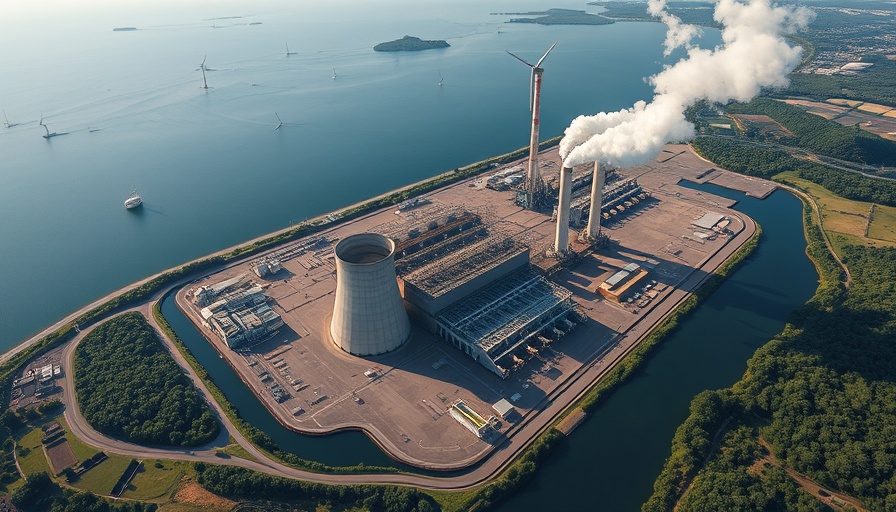
Indonesia Takes Bold Step Towards Renewable Energy
Indonesia is making headlines in the world of climate finance as it plans the early retirement of the Cirebon-1 coal power plant in West Java. Announced by the country's energy minister Bahlil Lahadalia, this initiative is part of the Just Energy Transition Partnership (JETP), which seeks to help coal-dependent developing nations with climate funding. Closing Cirebon-1 ahead of its scheduled date is lauded as a significant policy shift that could pave the way for more sustainable energy practices in the region.
Health Benefits of Early Closure
According to the Centre for Research on Energy and Clean Air (CREA), the early closure of Cirebon-1 is expected to have remarkable public health benefits. The initiative could prevent approximately 6,370 premature deaths associated with air pollution and curb around $4.4 billion in health-related economic losses attributed to respiratory diseases between 2036 and 2042. This will not only enhance public health but also decrease the economic burden placed on communities stricken by coal pollution.
Balancing Sustainability with Labour Rights
However, this transition towards renewable energy is not without its challenges. Civil society groups have expressed concerns over potential impacts on labor rights and the compensation for environmental damages linked to the plant’s closure. As Indonesia strives for a climate-friendly future, the voices of local communities and workers must be prioritized. Transparency and policies that ensure fair treatment for those affected are essential to truly embodying the principles of sustainable development.
Strategies for a Just Transition
To navigate this transition effectively, Indonesia must engage in discussions that prioritize fair solutions for workers who will lose their jobs due to the retirement of coal plants. Developing programs that support retraining these workers for jobs in renewable energy sectors or green technologies can create a fair path forward. By investing in education and training, Indonesia can ensure that the transition to green energy not only minimizes environmental damage but also supports the livelihoods of its citizens.
Future Outlook on Indonesia’s Energy Strategy
Looking ahead, the potential closure of other coal plants, such as the 1,050-MW Pelabuhan Ratu scheduled for 2037, signifies Indonesia's commitment to transforming its energy landscape. Continued advancements in renewable resources like solar, wind, and waste-to-energy systems will form the backbone of this new era. Active collaboration with international partners, leveraging financial aid to build green infrastructures, and ensuring that policies reflect the needs of the populace are crucial to facilitating a smooth transition.
Conclusion: A United Effort Towards Sustainable Living
As Indonesia embarks on this journey, it reflects a broader movement towards sustainable living and accountability. By actively engaging communities, respecting labor rights, and investing in sustainable technologies, the nation could stand as a model for others on how to translate ecological responsibility into beneficial socio-economic outcomes. The path to a sustainable future requires not only technological innovation but also an unwavering commitment to ethical practices, which can yield long-term benefits for both the environment and society.
 Add Row
Add Row  Add
Add 



Write A Comment